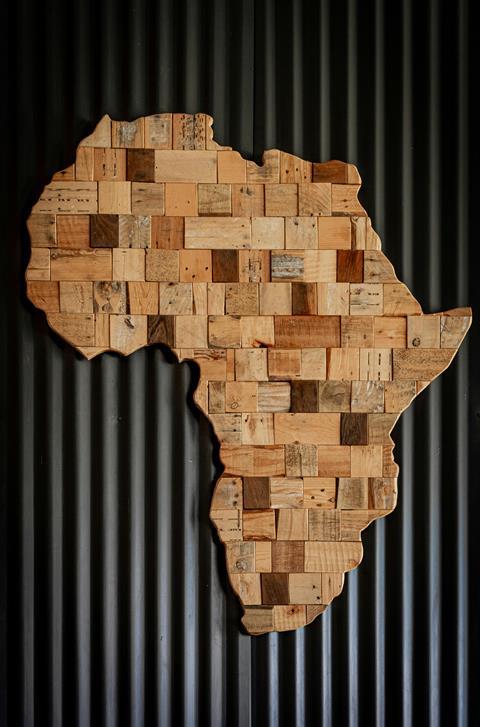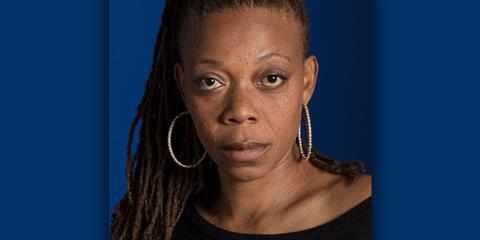The TV Collective’s Simone Pennant on why Africa offers a strategic, creative and cultural opportunity for international producers

In an era in which traditional commissioning models are contracting and global audiences are expanding, Africa is rapidly emerging as a major force in the international screen industries.
2025 presents a pivotal moment for UK producers to take notice. With new policy frameworks, regional production incentives, and a young, digitally connected population projected to grow by 2.5 billion by 2050, Africa is no longer an untapped frontier — it’s a creative and commercial partner whose time has come.
At The TV Collective, we’ve always believed that the future of the screen industries lies in building global bridges — and nowhere is that more evident in 2025 than in Africa.
While our work is rooted in championing Black and Global Majority talent, our mission also extends to supporting all producers who want to build successful, sustainable, and internationally connected careers.
We see Africa not as a frontier, but as a vital creative and commercial opportunity for the entire industry.
Is Africa the Next Global Powerhouse?
In 2024, more than 66 million international tourists travelled to Africa — a 30% year-on-year increase, according to the UN World Tourism Organisation. This surge reflects not only growing global curiosity but increasing confidence in Africa’s broader cultural, economic, and creative offerings.
Alongside tourism, Africa’s creative economy is also booming. Nollywood has become the world’s second-largest film industry by volume, generating over 2,500 films per year and contributing $7bn to Nigeria’s GDP. Meanwhile in South Africa, companies like Known Associates Group are scaling vertically — spanning production, post, studio operations, and managing Africa’s largest private film fund.
At the continental level, the African Export-Import Bank (Afreximbank) has committed $2bn to creative industries through its CANEX programme, including a landmark $500m Africa Film Fund to support content development, distribution, and infrastructure.
Together, these movements signal Africa’s rise - not just as a destination, but as a global creative and cultural powerhouse.
At the heart of Africa’s creative momentum are festivals like Zanzibar International Film Festival (ZIFF), which continues to provide global exposure for African filmmakers. Founded in 1998 following the collapse of cinema culture due to IMF subsidy reforms, ZIFF has long served as a hub for industry growth and innovation. For initiatives like The TV Collective, festivals like ZIFF are key partners, spaces where UK and African creatives can connect, share, and shape the future together.
The 28th edition featured standout screenings like Zippy Kimundu’s Widow Champion, which premiered at Hot Docs before screening at Tribeca, DC/DOX in Washington, and DOK.fest München. It had its African premiere at ZIFF with over 100 widows in attendance, exemplifying the emotional power and universality of African stories.
Panels such as “The Growing Need for African Stories: Are We Ready to Benefit?” tackled critical issues of ownership, authorship, and equity. As CeCe Mlay, co-director of The Empty Grave, observed: “There’s been a real increase in young people entering film in Tanzania, thanks to better access to equipment and online learning. But challenges remain — funding, visibility, and control over how our stories are told and received.”
Rebate systems fuelling growth
Governments across Africa are also enticing international producers by offering competitive tax rebate structures that rival global production hubs.
- South Africa
- 35% rebate on qualifying spend, plus an extra 5% for inclusive hiring (≥30% Black HODs and suppliers)
- To date, this initiative has generated well over $1.5 billion in foreign investment
- Ghana
- 20% rebate for strategic productions
- Hosted 51 international projects in 2022
- Also offers duty exemptions on equipment and income tax incentives
- Mauritius
- Up to 40% rebate for productions
- This has boosted job creation and foreign exchange inflow
- Morocco
- 30% rebate for productions exceeding $1 million
- Has attracted over $100 million annually from international filmmakers.
Each of these systems provides clear, measurable ROI, especially when paired with the continent’s vast range of untold stories and diverse communities and landscapes.
Open doors.. but exploitation is not tolerated
Africa’s creative door may be open, but its creators are no longer willing to be exploited.
As investment and international interest grow, African producers, storytellers, and institutions are making one thing clear: partnerships will only happen if they are fair, transparent, and mutually beneficial. Gone are the days of extractive practices disguised as opportunity.
Guidelines for this new era of co-production are being clearly articulated. The EAVE Impact Think Tank 2025 — a Europe-based initiative bringing together international producers, creatives, and policy leaders — is working to reshape global co-production models through a framework rooted in equity, sustainability, and cultural respect.
According to the group, equitable collaboration depends on six key principles:
- Embed inclusion from the start — it’s not an afterthought
- Share power and access — across budgets, rights, and roles
- Stay close to the community — centre local stories and people
- Value more than money — cultural and community contributions matter
- Build mutual benefit — especially for historically marginalised partners
- Disrupt the default — challenge legacy industry norms through co-production
These aren’t just ethical imperatives, they’re strategic requirements for long-term, sustainable creative partnerships. In 2025, African nations aren’t simply inviting collaborators, they’re laying out the terms for co-leadership, cultural respect, and shared value.
Make the move
Demographics and demand are aligning. By 2050, over half of global population growth will be driven by just eight countries — many in Africa — with a majority under 25. Digital platforms are already investing in content to serve this next generation.
“There’s a wave of exciting talent coming through,” says Isaac Nartey, creative consultant at payment provider AkunaWallet. “What’s making the difference is infrastructure. Tools like AkunaWallet are removing barriers and making it easier for African creators to collaborate globally. The stories are here. The systems are catching up. The moment to build is now.”
As traditional broadcast models fragment and global competition for talent and audiences increases, Africa presents a strategic, creative, and cultural opportunity for the UK and beyond.
Today, The TV Collective is increasingly serving as a first port of call for those exploring opportunities across the continent, connecting UK producers with African partners, festivals, and markets.

Africa’s creative moment is now, and if you’re ready to be part of it, we invite you to reach out to The TV Collective and join us this autumn where we’ll be exploring this very topic in an online panel followed by networking with African content creators. To find out more or register your interest, email me at simone@thetvcollective.org
Your decision shouldn’t hinge on whether Africa is ready, because it is. The real question is, are you?
- Simone Pennant MBE is the chief exec of The TV Collective, which promotes the creative and commercial value diversity brings to the British TV, digital media and film industries.








No comments yet